Continuing education is essential in any industry to stay up to date - but especially in complex and rapidly evolving technology areas like artificial intelligence. To this end, we present the seven most popular Artificial Intelligence books among our Data Scientists. Some of the works are also interesting for laypeople who want to better understand basic concepts of AI and its various applications.
Inhaltsverzeichnis
"Introduction to Machine Learning with Python" by Sarah Guido and Andreas C. Müller
As the book title suggests, the AI book focuses on providing practical knowledge on how to programme your own machine learning applications with Python and the library scikit-learn. After all, the possible applications of ML are almost unlimited and not only interesting for large companies with dedicated research teams.
The work is written in a very clear and understandable way and is therefore ideal for beginners. The mathematical basics behind the applications are rather left out. Previous knowledge of the libraries NumPy and matplotlib is not mandatory, but helps in understanding the content.
In addition to basic concepts and applications of machine learning, the book also offers suggestions at the end on how to improve one's own competences in the field of ML and Data Science can expand even further.
"Pattern Recognition and Machine Learning" by Christopher M. Bishop
"Pattern Recognition and Machine Learning" provides a comprehensive introduction to the fields of pattern recognition and machine learning. The AI book is primarily aimed at students, researchers and doctoral students as well as lecturers, who are supported by additional training material. But it is also suitable reading for all those who use ML in practice and want to acquire more theoretical knowledge.
Important developments of the last few years such as the use of the Bayesian method in the mainstream instead of previously for niche applications are covered. But practical exercises and project-related tasks are not neglected either.
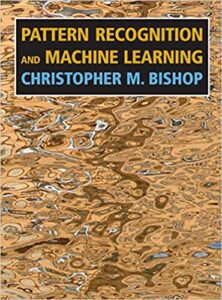
Prior knowledge of pattern recognition or machine learning concepts is not assumed. However, basic knowledge of linear algebra and multivariate methods is recommended.
Tip: Via Microsoft, the Workbook Download free of charge as PDF and use.
"Artificial Intelligence: A Modern Approach" by Stuart J. Russell and Peter Norvig
This book is also aimed primarily at students and is used as a textbook at over 1400 universities worldwide. However, it is generally suitable for those interested in AI, because it offers a clear and understandable introduction to the subject without scratching the surface too much. The work is even considered the world's most popular textbook on artificial intelligence.
With a total of seven parts (and 27 sub-chapters) designed to last two semesters, this is a very comprehensive standard work.
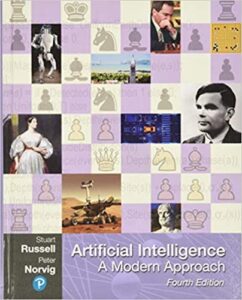
The fourth edition differs from the previous versions in its focus on machine learning, Deep Learning, probabilistic programming, multi-agent systems and includes sections where the utility function of AI is not certain but uncertain.
Finally, it deals with the past and future of AI, the question of how to define AI in the first place and the discussion of various philosophical approaches. The programmes in the book are presented in pseudocode, with implementations in Java, Python and Lisp are available online.
"Designing Data-Intensive Applications: The Big Ideas Behind Reliable, Scalable, and Maintainable Systems" by Martin Kleppmann
This work takes on the function of a guide for processing and storing data. Here, challenges such as scalability, consistency, reliability, efficiency and maintainability have to be solved - and one has to find one's way through the variety of tools. Martin Kleppmann provides an overview by discussing the advantages and disadvantages of the technologies in a comprehensive and practice-oriented manner. He also highlights the basic principles behind them, which remain the same even if the software changes.
This makes the book particularly suitable for software engineers and architects who want to learn how to apply the concepts in practice and how to make the best use of data in modern applications. In addition, the reader receives suggestions on how to operate systems that they are already using even more effectively.
"The Ultimate Data and AI Guide" by Alexander Thamm et al.
Artificial intelligence, machine learning and big data are topics that are as complex as they are much discussed - the "Ultimate Data and AI Guide", co-authored by our founder Alexander Thamm, takes on the role of a guide here and teaches everything you really need to know about data and AI. The aim is to give the reader a complete overview and a solid understanding of the most important concepts around data, machine learning and AI.
The contents are based on our experience from over 500 data projects in more than 100 companies, explained in an understandable as well as practical way and arranged in 150 FAQs.
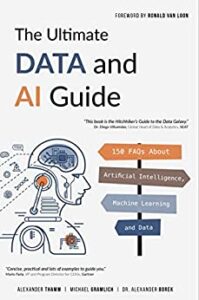
This makes it suitable reading for (prospective) data scientists who want to get a basic overview of the subject. But interested readers from outside the field of data science can also learn how AI, machine learning and data are increasingly shaping our economy and society - no prior knowledge is necessary for understanding. Finally, the book can serve as a reference work for experts. 63 case studies also provide food for thought on how data and ML methods can be used profitably in one's own company.
"Competing in the Age of AI: Strategy and Leadership When Algorithms and Networks Run the World by Marco Iansiti and Karim R. Lakhani
AI-centric companies operate differently from traditional ones and are completely redefining how they invent, create and deliver products and services. They simply overcome previously thought insurmountable limitations, for example in terms of scalability. This also means that completely different rules and probabilities apply to strategy in such a company. This is precisely what "Competing in the Age of AI: Strategy and Leadership When Algorithm and Networks Run the World".
Marco Iansiti and Karim R. Lakhani explain how AI-centric companies are crossing industry boundaries and producing ever higher performing products - to make ever more accurate, complex and sophisticated predictions. They also describe new challenges and responsibilities for the C-suite of digital and traditional companies.
The reading is primarily aimed at executives, but is also of interest to all others who want to understand the changes in corporate strategies brought about by AI.
"AI Superpowers" by Kai-Fu Lee
In addition to the basic works already mentioned, our data scientists recommend "AI Superpowers". This is not about teaching theoretical basics, but about a social and economic view of the topic of AI, which is well worth reading.
Kai-Fu Lee, former CEO of Google China and one of the world's most renowned AI experts, discusses the huge and unstoppable revolution that AI promises. Through his background, he brings the Chinese-American perspective and paints a drastic picture of the developments of recent years and the future.
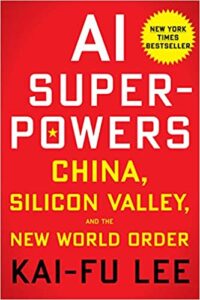
Because while the basic development of AI can be traced back to Europe and the USA, China is clearly the revolutionary leader. Kai-Fu Lee describes the reasons for this development and reveals what distinguishes Chinese business culture from others - and why it produces such successful companies.




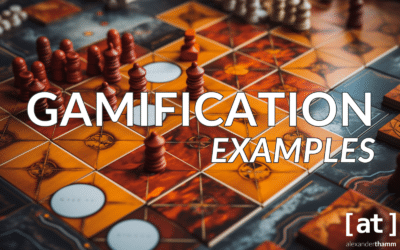





0 Kommentare